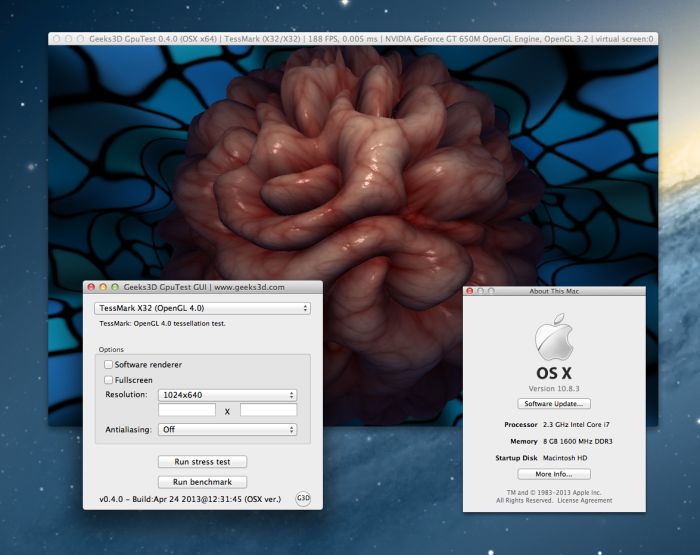
TessMark: OpenGL 4 tessellation under Mac OSX
1 – GpuTest 0.4.0 Overview
GpuTest is a 64-bit cross-platform OpenGL benchmarking utility for Windows, Mac OS X and Linux. GpuTest comes with several OpenGL tests including FurMark (OpenGL 3.2), TessMark (OpenGL 4.0) as well as new ones like GiMark (geometry instancing) or PixMark (heavy pixel shaders).
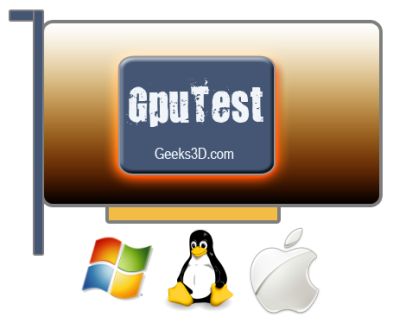
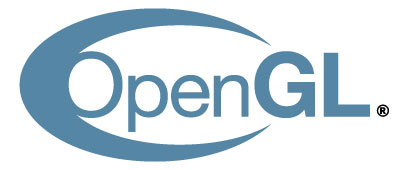
The version 0.4.0 of GpuTest is available and this time, OS X users can taste OpenGL 4 tessellation on their Mac systems. I must say that I was rather suprised when I saw TessMark running smoothly on my Macbook Pro Retina (Intel HD Graphics 4000 and NVIDIA GeForce GT 650M) with OSX 10.8.3, after having removed all checks I usually do in the initialization of an OpenGL demo. Apple has added in OS X more OpenGL 4 support than I thought, which is pretty cool. TessMark works fine with the GeForce GT 650M while the rendering is a bit perturbed with the HD Graphics 4000 as you can see on the following pictures:
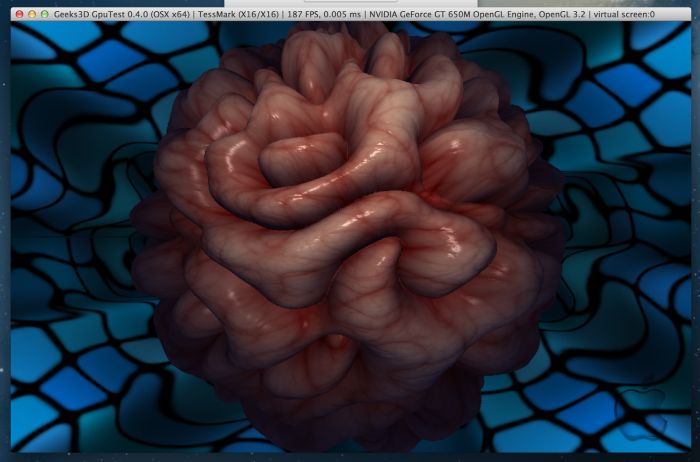
TessMark: OpenGL 4 tessellation under Mac OSX with the NVIDIA GeForce GT 650M: correct rendering
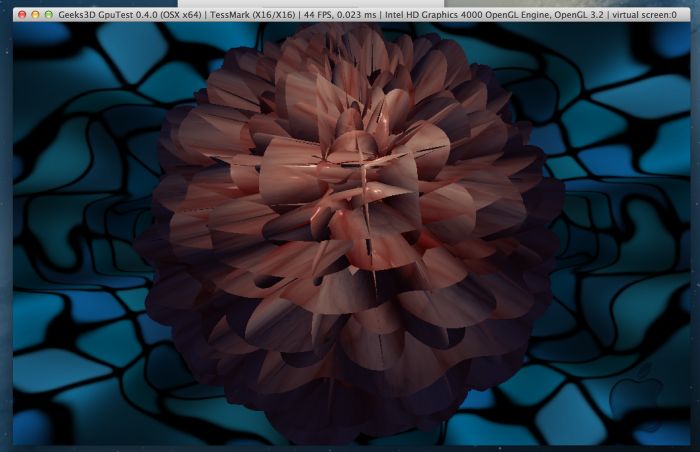
TessMark: OpenGL 4 tessellation under Mac OSX with the Intel HD Graphics 4000: incorrect rendering
I didn’t test TessMark with a Radeon card and then, if you have such a card (HD 5000/6000/7000), let me know how it works (by posting in the comments section of this article or in GpuTest forum).
Update (2013.05.14):
The current state of OpenGL 4 tessellation on Mac OS X 10.8 can be found here:
OpenGL 4 Tessellation on Mac OS X
OS X 10.7 and 10.8 officially support OpenGL 3.2 only (more details HERE). But Apple has added some features of OpenGL 3.3 and OpenGL 4.0 in OS X. That’s why we can run GiMark (OpenGL 3.3 test) and now TessMark (OpenGL 4.0) under OS X. Keep in mind that OpenGL 4 is not official and is partially supported on Mac OS X, that’s why TessMark might not run on some Mac systems.
GpuTest 0.4.0 also fixes a small bug with Radeon cards under Linux in TessMark test:
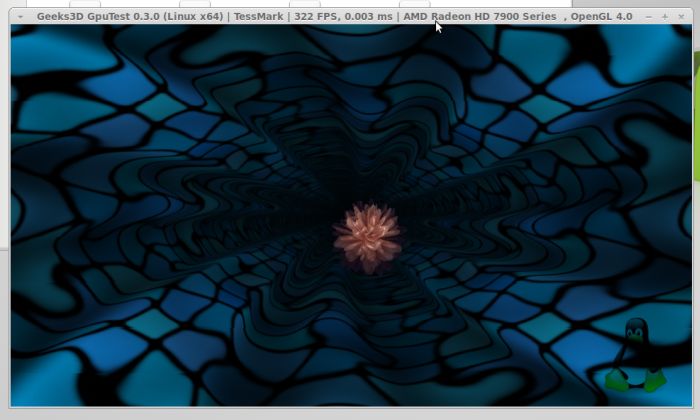
TessMark bug with Radeon based cards under Linux
The rendering of the Piano demo has been improved with a better noise texture to get the old and rusty look wanted by iq in his original webgl demo:
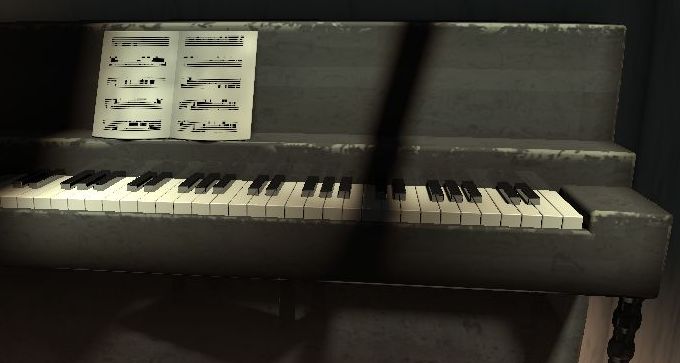
GpuTest includes several OpenGL tests from OpenGL 2 to OpenGL 4.
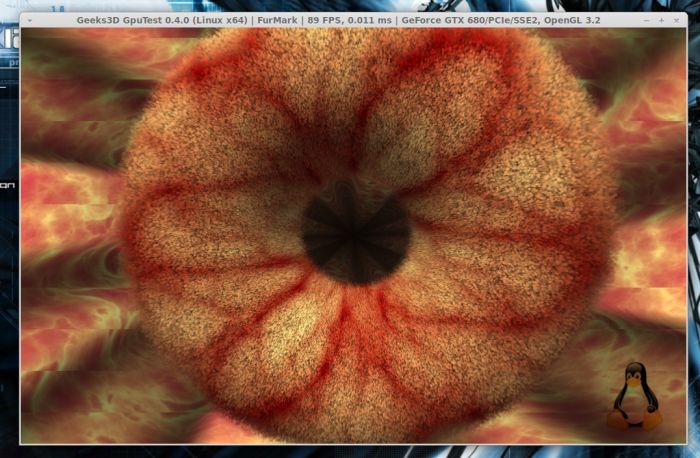
GpuTest FurMark (OpenGL 2.1 and 3.2) test under Linux
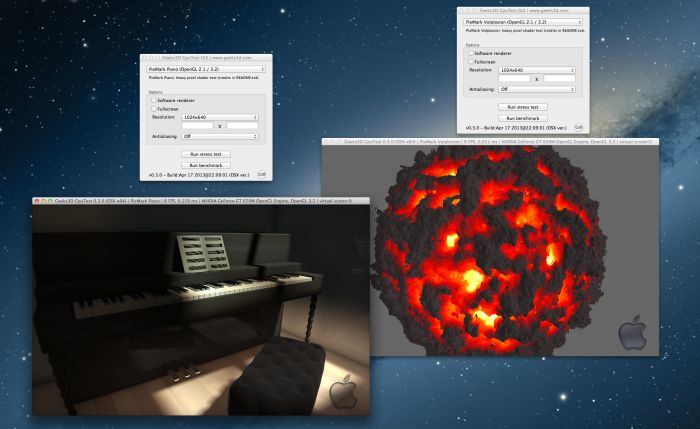
GpuTest pixel shader test: Piano and Volplosion under OSX (OpenGL 2.1 and 3.2)
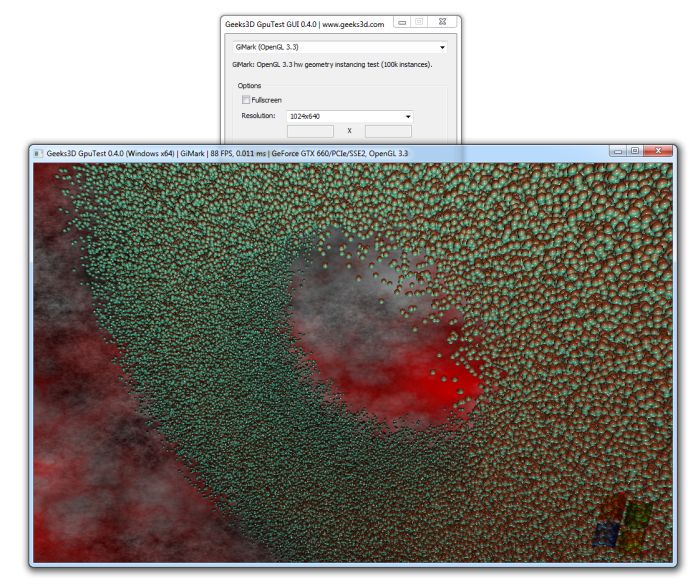
GpuTest: GiMark (geometry instancing, OpenGL 3.3) test under Windows
GpuTest has an user interface under Windows and OS X:
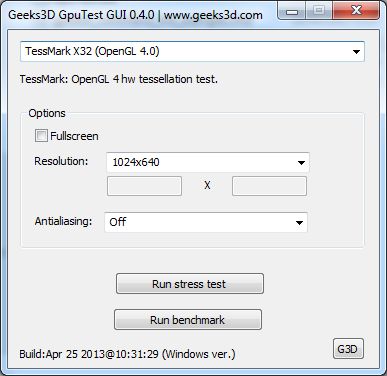
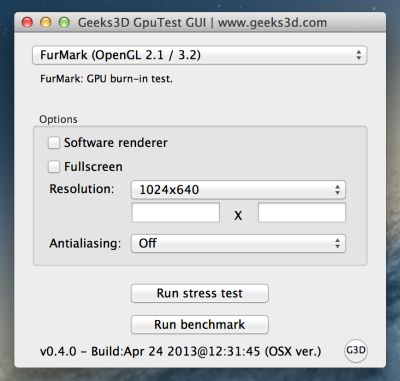
You can also launch GpuTest from the command line (this is the method for Linux). A batch file is provided that shows the various command line options.
2 – GpuTest 0.4.0 Downloads
|
The latest version of GpuTest can be downloaded from this page: GpuTest Downloads.
You can post feedbacks and bug-reports in the comments section of this post or in GpuTest forum.
3 – GpuTest 0.4.0 Changelog
- TessMark OpenGL 4.0 demo now runs on OSX 10.8!
- added new tessellation levels for TessMark: X8, X16, X32 and X64. Default is X32.
- updated TessMark rendering code to fix a bug with Radeon cards under Linux.
- update: OpenGL core profile is used for all OpenGL 3+ demos.
- added new command line param to disable the check of correct OpenGL support: /disable_opengl_support_check . This check is done in GiMark and TessMark demos.
- Updated test of OpenGL 4 tessellation shader support for TessMark demo.
- Updated the texture used by the Pixmark Piano demo to get the old and rusty look (thanks to iq!).
- Fixed a bug in background pixel shader of TessMark demo (texture2D() function was used in place of texture() in a GLSL 1.50 / OpenGL 3.2 shader).



thanks again for making this available for OSX. you folks are amazing!
Could you be more specific about which OpenGL 4.0+ extensions are exposed that were required for your benchmark?
@soconne: GeForce 400-series/Radeon HD 5000-series or newer is required for OpenGL 4.x.
I understand, I’m just curious which specific extensions Apple exposed under OSX 10.8.3 that enabled tessellation shaders. I, like you, was under the impression only OpenGL ~3.3 was supported. I only have the Intel HD 4000 so I’m unable to see for myself. Thanks.
@soconne: Apple (or maybe NVIDIA/Intel, I don’t know exactly who) added the support of tessellation shaders without exposing the GL_ARB_tessellation_shader extension. If you have an Intel HD 4000, you can test the tessellation demo, the HD 4000 is an OpenGL 4 capable GPU. But as I said in the overview of GpuTest 0.4.0, the rendering of the TessMark demo is not correct on HD 4000.
Hi,
This doesn’t seem to work on an Ivy Bridge HD4000 system (Win7) even though I’m using the latest Intel drivers. Evey test I’ve tried (starting from the GUI) fails. Don’t know if it’s something specific to me or a known failure/limitation.
Thanks.
@RandyR: thanks for the feedback. I must say that I forgot to test on Intel HD 4000 under Windows (I know that GpuTest works fine on the intel HD 4000 of the Macbook Pro). I will test it asap.
Tried Tessmark on an iMac with a 6970m. It worked, and rendered correctly. Although very slowly (1fps with high cpu usage), so it seems like it’s dropping back to software rendering on that card at least.
@Jordz: thanks! Yes, around 1 FPS is software rendering.
Piano crashes on 7870XT and 7950 as well. Exactly the same as 0.3.0. MP 4,1 10.8.3
Waiting for 10.8.4 and (hopefully) better driver from AMD.
10.8.4 with updated AMD drivers, no change 🙁
Piano still crashes on 7xxx cards, Volplosion runs but score is still 19 fps. My 7950 w.Boost runs currently @1175/1375 instead of stock 925/1250 and it does not have an impact on Volplosion score.
@blacksheep: could you please please test GLSL Hacker 0.5.0 demos with your system? Post your feedbacks in GLSL Hacker 0.5.0 page or in this forum. Maybe we’ll see some bugs I can fix…
Sure I’ll do 🙂
Meanwhile in Mavericks DP1…
TessMark x8 1920×1200 fullscreen, AA off: 56428 pts. FPS 941
Volplosion, same res, AA off: 1453 24 fps
Piano still crashes.
@blacksheep: I just received the information that the crash in Piano test has been fixed by AMD. But I don’t know when new drivers will be available. Anyway, it’s a good news!
On 10.9 DP2, with the new 13″ MacBook Air 2013, boosted version (HD 5000/core i7 1.7 GHz), I get 22 FPS at the TessMark x32 with fourfold antialiasing, fullscreen (1440×900). Running x64 halves that performance. Without antialiasing, the performance ramps up to 70 FPS. Without antialiasing, the x64 test runs at 32 FPS, which is reasonable.
Pixmark Piano is very slow (2 FPS) but does not crash.
FurMark gets 8 FPS.
GiMark 21 FPS.
Hope that helps!